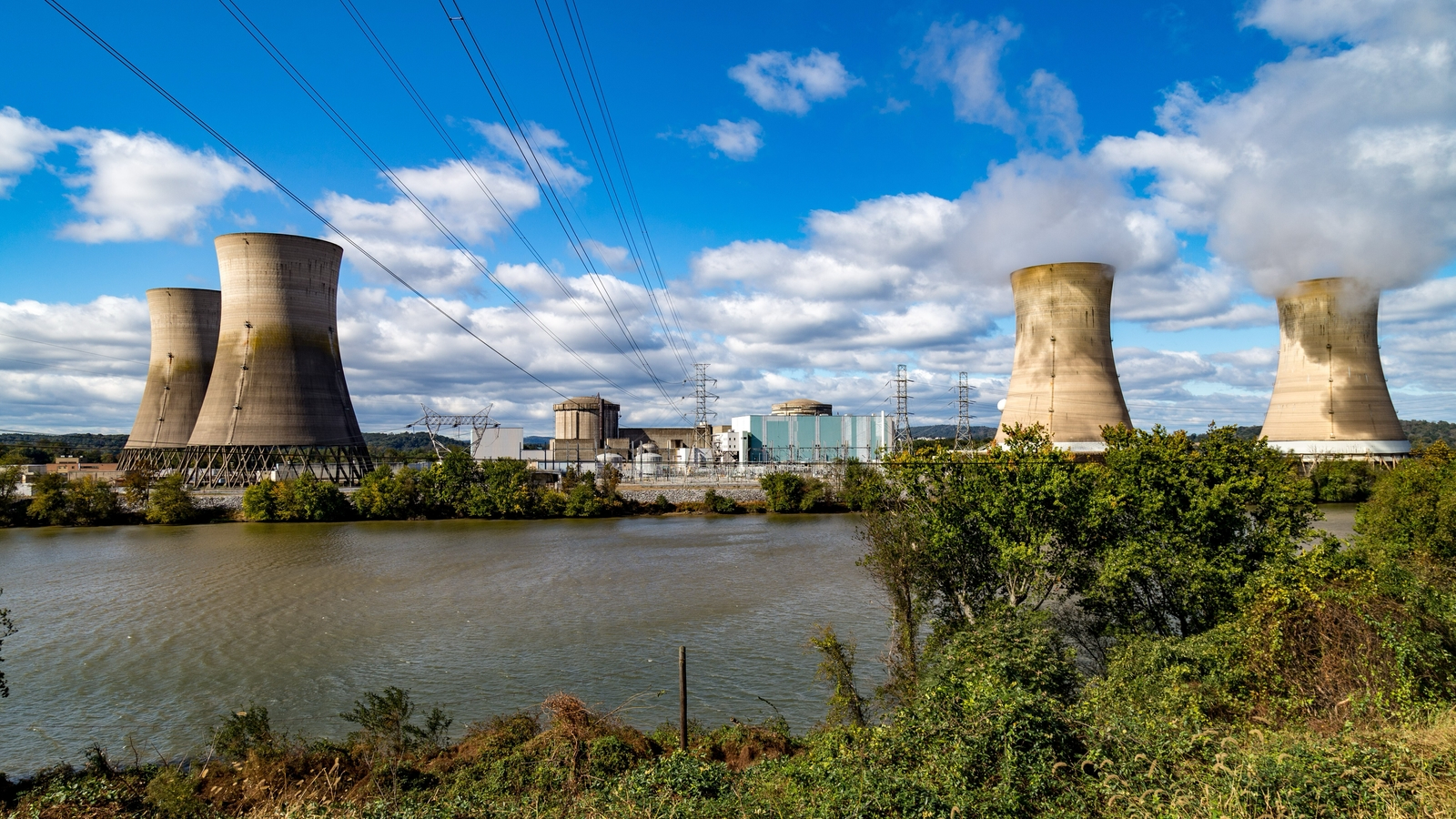
Modern AI data centers consume enormous amounts of power, and it looks like they will get even more power-hungry in the coming years as companies like Google, Microsoft, Meta, and OpenAI strive towards artificial general intelligence (AGI). Oracle has already outlined plans to use nuclear power plants for its 1-gigawatt datacenters. It looks like Microsoft plans to do the same as it just inked a deal to restart a nuclear power plant to feed its data centers, reports Bloomberg.
819 MW for AI and cloud data centers
Constellation Energy will invest $1.6 billion to restart its Three Mile Island nuclear plant in Pennsylvania. The revived reactor will provide clean electricity to Microsoft for 20 years, supporting the tech giant's AI and cloud computing energy needs. This reactor had a generating capacity of approximately 819 megawatts (MW) of electricity, which is enough power for a small to medium-sized city with hundreds of thousands of homes. The plant should be operational by 2028, and it will serve Microsoft exclusively. This agreement represents Microsoft's first long-term commitment to nuclear energy, which is part of its strategy to meet its growing energy needs with carbon-free sources.
Three Mile Island has two reactors, one of which (with a capacity of 906 MW) was shut down in 1979 after a nuclear accident. The other (with a capacity of 819 MW), closed in 2019 due to economic issues, is now set to reopen thanks to the deal with Microsoft.
The restart project has been in development since early 2023 when Constellation began evaluating the feasibility of bringing the reactor back online. After deciding to proceed with the project, the company entered discussions with potential buyers, with Microsoft showing immediate interest.
Work on the plant will include extensive upgrades to essential equipment, such as the main transformer, turbine, and cooling systems. The facility will need to be fully restaffed, and Constellation plans to seek approval from the Nuclear Regulatory Commission to extend the reactor's operating license until 2054.
Constellation will finance the $1.6 billion project without government aid, unlike other reactor revival efforts seeking state or federal support. For example, Holtec International is reviving a Michigan reactor with $1.8 billion in conditional government funding, according to Bloomberg. While Constellation is not opposed to outside help, its CEO, Joe Dominguez, prefers to avoid delays that often come with securing government approvals.
The decision to restart Three Mile Island comes amid a broader resurgence of interest in nuclear power, especially from tech companies. As demand for cloud computing and AI grows, so does the need for stable, reliable energy sources that can run 24/7. These requirements make nuclear power an attractive option compared to the intermittency of renewable energy sources like wind and solar.
One of the project's more challenging aspects will be connecting the reactor to the power grid managed by PJM Interconnection. PJM has a long queue of projects awaiting grid connections, but the head of Constellation hopes that progress can be made quickly enough to have the plant supplying power by 2027.
Managing carbon footprint
Microsoft's decision to partner with Constellation highlights the challenges of managing its carbon footprint. The company aims to power its entire global network of data centers with clean energy by 2025, and this nuclear deal will help achieve this goal. However, despite the benefits of nuclear power, it does not fully solve issues like emissions from the materials used in data centers, such as steel, concrete, and semiconductors.
"This agreement is a major milestone in Microsoft's efforts to help decarbonize the grid in support of our commitment to become carbon negative. Microsoft continues to collaborate with energy providers to develop carbon-free energy sources to help meet the grids' capacity and reliability needs," said Bobby Hollis, VP of Energy at Microsoft.
Microsoft is not the only tech company turning to nuclear power to support its data centers. Nuclear power's reliability, which can operate continuously, makes it an ideal match for tech companies that require consistent energy to power their data centers around the clock. Earlier in 2024, Amazon's cloud division signed a $650 million deal to buy a data center campus connected to a nuclear plant on the Susquehanna River in Pennsylvania. Oracle also announced plans to use three small nuclear reactors to power its 1 GW AI data centers in the future.







